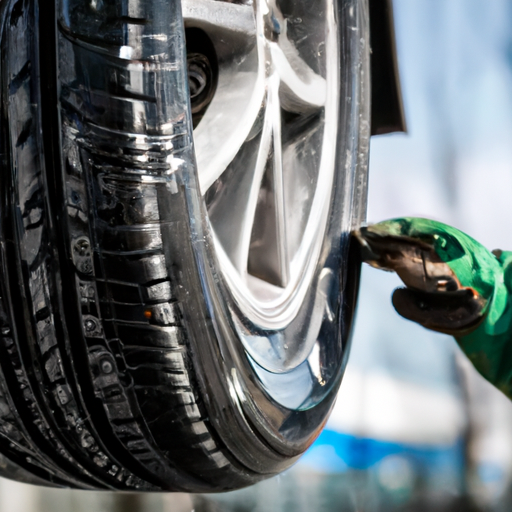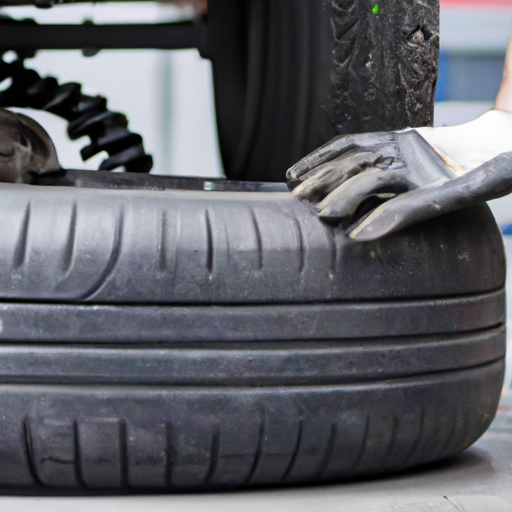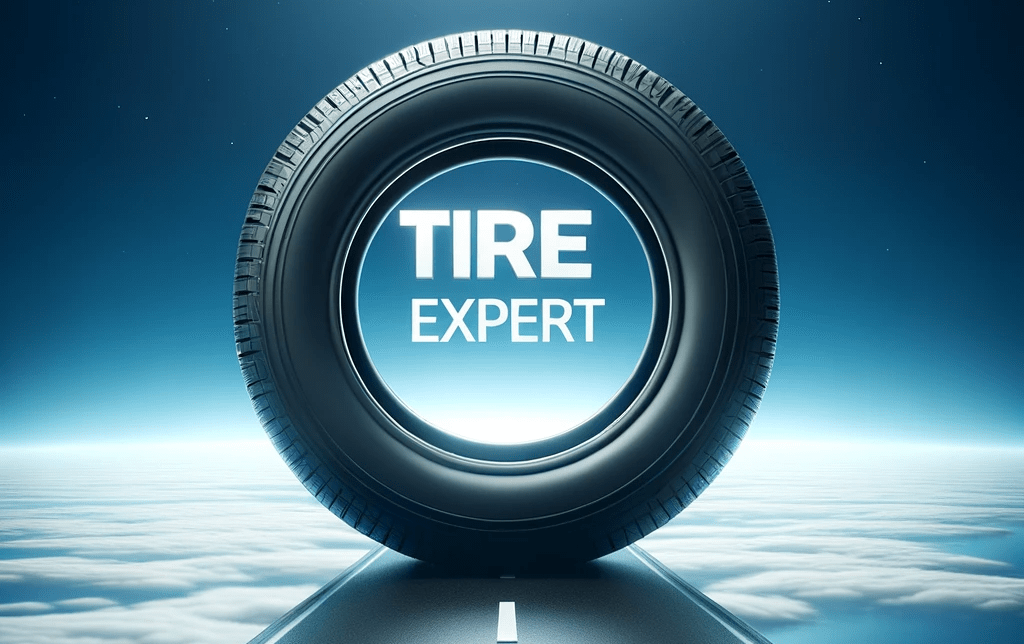Maintaining the longevity of your tires is crucial for both safety and cost-efficiency, but have you ever considered the impact of regular tire cleaning? This article explores the connection between tire cleanliness and tire lifespan, uncovering the potential benefits that come with diligently keeping your tires clean. Discover how this simple and often overlooked task could extend the life of your tires, saving you money and ensuring a smoother ride in the long run.
Importance of Regular Tire Cleaning
Regular tire cleaning is essential for maintaining the longevity and performance of your tires. By preventing the buildup of road grime and debris, you can ensure that your tires maintain optimal traction and performance. Additionally, regular tire cleaning enhances overall safety and handling, reducing the risks of accidents or skidding on the road.
Preventing Buildup of Road Grime and Debris
When you drive, your tires come into contact with various substances on the road, such as dirt, mud, oil, and chemicals. Over time, these substances can accumulate on the surface of your tires, leading to the buildup of road grime and debris. This buildup can negatively impact the performance of your tires by reducing traction and grip.
Regular tire cleaning helps prevent the buildup of road grime and debris, ensuring that your tires maintain their effectiveness. By removing these substances, you can improve the traction and grip of your tires, allowing for a safer and smoother driving experience.

Maintaining Optimal Traction and Performance
One of the primary functions of tires is to provide traction, allowing your vehicle to grip the road surface. However, when your tires are dirty, the layer of road grime and debris can compromise their ability to maintain optimal traction. This can lead to decreased performance, longer stopping distances, and reduced handling capabilities.
By cleaning your tires regularly, you can maintain optimal traction and performance. Removing the dirt and debris not only improves the grip but also enhances your ability to control the vehicle, especially during challenging driving conditions.
Enhancing Overall Safety and Handling
Safety is a top priority when it comes to driving, and the condition of your tires plays a significant role in ensuring a safe journey. When tires are clogged with dirt and grime, their grip on the road decreases, increasing the likelihood of skidding or sliding. This can be particularly dangerous in wet or slippery conditions.
Regular tire cleaning enhances overall safety and handling by eliminating the factors that hinder tire performance. With clean tires, you can have peace of mind knowing that your vehicle will respond effectively to your commands, reducing the risks of accidents and ensuring a safer driving experience for you and your passengers.

Effective Tire Cleaning Techniques
To achieve the best results when cleaning your tires, it’s crucial to use effective techniques that thoroughly remove dirt, grime, and debris. Here are some recommended techniques for effective tire cleaning:
Removing Surface Dirt and Dust
Before applying any cleaning products, it’s important to remove the surface dirt and dust from your tires. Start by rinsing them with water to loosen and remove loose dirt. Then, use a gentle brush or sponge to scrub the tires, paying attention to the tread pattern and sidewalls. This initial step helps prepare the tires for a more thorough cleaning.
Using Specialized Tire Cleaning Products
While water and a brush can remove surface dirt, specialized tire cleaning products offer more effective results. These products are specifically formulated to break down and remove stubborn dirt, grime, and road residue without damaging the tires. Look for products that are safe for use on all tire types and follow the manufacturer’s instructions for the best results.
Clean and Polish the Sidewalls
The sidewalls of your tires are often overlooked but contribute to the overall appearance and longevity of your tires. To clean the sidewalls, use a tire cleaner or a mild soap solution along with a dedicated tire brush. Gently scrub the sidewalls, removing any dirt or staining. After cleaning, consider applying a tire sidewall protectant or dressing to enhance the appearance and protect against UV damage.
Inspecting and Cleaning the Tread Pattern
The tread pattern of your tires is vital for maintaining traction and grip on the road. Regularly inspect the tread pattern for any embedded rocks, glass, or other debris that should be removed. Use a small brush or toothbrush to clean between the tread grooves, ensuring all debris is removed. This step helps maintain the effectiveness of the tire’s grip and prevents potential damage or punctures.
Drying and Proximity to Heat Sources
After cleaning your tires, it’s essential to dry them thoroughly before driving. Moisture on the tire surface can lead to a loss of traction and promote the growth of mold or mildew. Use a clean microfiber cloth or towel to thoroughly dry the tires, ensuring they are completely free of moisture.
Additionally, it’s important to avoid parking your vehicle near heat sources such as direct sunlight, radiators, or exhaust pipes after cleaning. The heat can cause the tire to expand, potentially leading to issues with tire pressure or even structural damage.
Recommended Cleaning Schedule
The frequency of tire cleaning depends on various factors, including road conditions and driving habits. However, a general guideline is to clean your tires at least once a month or more frequently if you frequently drive on muddy or dusty roads. Regular cleaning helps maintain the performance and appearance of your tires while reducing the risks of premature wear and damage.
Frequency of Tire Cleaning
As mentioned earlier, a monthly cleaning routine is generally recommended for most drivers. However, if you often drive on roads with heavy debris or in inclement weather, it may be necessary to clean your tires more frequently. By assessing the condition of your tires regularly, you can determine the appropriate cleaning schedule for your specific driving needs.
Consideration of Road Conditions and Driving Habits
Road conditions and driving habits have a significant impact on how quickly dirt and grime accumulate on your tires. If you frequently drive on unpaved or muddy roads, your tires will collect more debris and require more frequent cleaning. Similarly, aggressive driving or cornering can cause the tires to pick up more debris from the road surface, necessitating more regular cleaning.
By considering the road conditions you typically encounter and evaluating your driving habits, you can adjust your tire cleaning schedule accordingly. This proactive approach will help ensure that your tires remain in optimal condition, improving their performance and lifespan.

Extending Tire Life through Regular Cleaning
Cleaning your tires regularly offers numerous benefits that can extend their lifespan and save you money in the long run. Let’s explore some of the ways regular tire cleaning can help prolong the life of your tires:
Preventing Premature Tire Aging
Dirt, grime, and road residue can accelerate the aging process of your tires, causing them to deteriorate prematurely. This can lead to issues such as cracking, dry rot, and loss of structural integrity. By regularly cleaning your tires, you remove the substances that contribute to premature aging, helping to maintain their flexibility, strength, and overall condition.
Avoiding Dry Rot and Cracking
Tires that are exposed to harsh elements, such as the sun’s UV rays, can be prone to dry rot and cracking. This can compromise the tire’s integrity and safety, making them more susceptible to blowouts or punctures. By regularly cleaning your tires and applying protectants or dressings, you create a barrier that shields against UV damage and prevents dry rot and cracking.
Enhancing Tire Appearance and Aesthetics
Cleaning your tires not only improves their performance but also enhances their appearance. Well-maintained tires contribute to the overall aesthetics of your vehicle, giving it a polished and well-cared-for look. Additionally, regular cleaning removes dirt and staining that can be difficult to remove if left neglected for an extended period. Your tires will have a fresh and clean appearance that adds to the visual appeal of your vehicle.
Reducing the Need for Costly Tire Replacements
Tires are a significant investment, and their replacement can be costly. By practicing regular tire cleaning, you can prolong the lifespan of your tires, reducing the need for premature replacements. Well-maintained tires are less likely to suffer from damage or wear, allowing you to maximize their performance and durability. This can save you money in the long run and contribute to your overall vehicle maintenance budget.
Potential Risks and Precautions
While regular tire cleaning offers numerous benefits, it’s essential to be aware of potential risks and take precautions to avoid damaging your tires. Here are some key considerations to keep in mind:
Choosing Appropriate Cleaning Products
Not all cleaning products are suitable for use on tires. Avoid using harsh chemicals or abrasive cleaners that can damage the rubber or degrade the sidewalls. Instead, opt for specialized tire cleaning products that are specifically formulated for safe use on all tire types. Always read the manufacturer’s instructions and follow them carefully to ensure you use the products correctly.
Avoiding Damaging Chemicals
In addition to choosing appropriate cleaning products, it’s essential to avoid chemicals that can damage your tires. Petroleum-based solvents or cleaners that contain bleach, acids, or citrus oils can deteriorate the rubber, leading to cracking or premature aging. Stick to products that are specifically designed for tire cleaning and avoid using anything that could compromise the integrity of your tires.
Preventing Damage to the Tire Surface
When cleaning your tires, be mindful of the tools or brushes you use. Avoid using wire brushes or harsh scrubbing materials that can scratch or damage the tire surface. Opt for soft-bristled brushes or sponges specifically designed for tire cleaning to minimize the risk of surface damage. Additionally, never apply excessive force when cleaning, as this can cause unnecessary wear or compromise the tire’s structural integrity.

Other Factors Affecting Tire Life
While regular tire cleaning is an important part of tire maintenance, there are other factors that can significantly impact the lifespan and performance of your tires. Here are some additional areas to consider:
Proper Tire Inflation
Maintaining proper tire inflation is crucial for optimal performance and longevity. Underinflated or overinflated tires can lead to uneven wear, reduced fuel efficiency, and an increased risk of blowouts. Regularly check your tire pressure and ensure it is within the recommended range specified by your vehicle manufacturer. Properly inflated tires have a longer lifespan and provide better handling and fuel economy.
Correct Wheel Alignment
Wheel alignment refers to the positioning of your tires and suspension components to ensure they are aligned with each other and the road surface. When your wheels are misaligned, it can cause uneven tire wear and affect the vehicle’s handling and steering. Regular wheel alignments help distribute the weight evenly across the tires, promoting even wear and maximizing tire life.
Regular Tire Rotation
Tire rotation involves moving the tires from one position to another on the vehicle to promote even wear. This ensures that all four tires wear evenly, improving their longevity. Front-wheel-drive vehicles tend to wear the front tires more quickly, while rear-wheel-drive vehicles wear the rear tires more rapidly. By rotating the tires according to the manufacturer’s recommendations, you can extend their lifespan and optimize performance.
Balancing the Tires
Tire balancing involves equalizing the weight distribution of the tire and wheel assembly. Unbalanced tires can cause vibrations, uneven wear, and steering issues. Regular tire balancing helps ensure that the weight is evenly distributed, improving tire performance, longevity, and the overall driving experience. It is recommended to have your tires balanced whenever they are rotated or whenever you notice vibrations or uneven wear.
Common Myths Surrounding Tire Cleaning
There are several common myths and misconceptions surrounding tire cleaning that need to be dispelled. Let’s explore and debunk these myths:
Cleaning Can Cause Tire Damage
Some people believe that cleaning tires can damage the rubber or degrade the tire’s structural integrity. However, when using appropriate cleaning products and techniques, tire cleaning is safe and beneficial. It is essential to avoid harsh chemicals or abrasive tools that can potentially damage the tire surface. By following proper cleaning procedures, you can maximize the benefits of tire cleaning without causing any harm.
Only Visible Dirt Needs to be Cleaned
It’s not just visible dirt that can harm your tires. Even a thin layer of road grime or dust can compromise their performance and longevity. Cleaning your tires thoroughly, including the tread pattern and sidewalls, is crucial for maintaining optimal traction and shedding debris that can cause damage or punctures. Don’t overlook the unseen dirt – a thorough cleaning is necessary to ensure tire health.
Tire Cleaning is Time-Consuming and Inconvenient
While tire cleaning does require some time and effort, it is a relatively simple and straightforward task. With the right tools and cleaning products, you can quickly and effectively clean your tires. Moreover, the benefits of regular tire cleaning, including improved performance, safety, and longevity, far outweigh the minor inconvenience of dedicating some time to this essential maintenance task.

Special Considerations for Different Tire Types
Different tire types may require specific cleaning methods and techniques to maintain their performance and appearance. Let’s explore some special considerations for cleaning different tire types:
Cleaning Methods for All-Season Tires
All-season tires are designed to provide reliable year-round traction and performance. When cleaning all-season tires, it’s important to use products that are safe for use on both rubber and synthetic materials. Follow the manufacturer’s instructions for cleaning and apply protectants that provide UV protection and prevent premature aging.
Cleaning Techniques for Performance Tires
Performance tires are designed for enhanced grip, maneuverability, and handling at higher speeds. To clean performance tires, it is recommended to choose gentle cleaning products that do not contain any harsh chemicals. Additionally, be cautious when scrubbing the tread pattern, as it is crucial for maintaining optimal performance. Consider using a soft-bristled brush or sponge specifically designed for performance tire cleaning.
Cleaning Guidelines for Off-Road Tires
Off-road tires are exposed to harsh conditions, such as mud, sand, rocks, and uneven terrain. Cleaning off-road tires requires a more thorough approach due to the potentially excessive buildup of dirt and debris. Start by rinsing off any loose dirt and mud, then apply a specialized off-road tire cleaner. Use a brush or sponge to scrub the tire surface, paying attention to the tread pattern and sidewalls. Rinse thoroughly to remove all cleaning products and debris, ensuring your tires are clean and ready for their next adventure.
Professional Tire Cleaning Services
While regular DIY tire cleaning is effective, there may be instances when professional tire cleaning services are beneficial. Here are some benefits of opting for professional tire cleaning:
Benefits of Professional Tire Cleaning
Professional tire cleaning services offer several advantages. Trained technicians have access to specialized equipment, cleaning products, and techniques that can provide a deeper and more thorough clean. Additionally, professional cleaning can often address stubborn stains or grime that may be difficult to remove with conventional cleaning methods. This option is particularly useful for those with limited time or those who want to ensure the best possible results for their tires.
Choosing the Right Service Provider
When considering professional tire cleaning, it’s crucial to choose a reputable service provider. Look for establishments that have experience in tire cleaning and maintain a high level of professionalism. Research customer reviews and ask for recommendations from trusted sources to ensure that the service provider delivers quality results. A reliable and experienced professional can help maximize the benefits of tire cleaning and ensure the longevity of your tires.
Conclusion
Regular tire cleaning is an essential aspect of vehicle maintenance that can significantly extend the life of your tires. By preventing the buildup of road grime and debris, maintaining optimal traction and performance, and enhancing overall safety and handling, you can ensure that your tires serve you well for an extended period.
With effective tire cleaning techniques, a recommended cleaning schedule, and an understanding of the factors that impact tire lifespan, you can take an active role in preserving the lifespan of your tires. By also considering potential risks and following precautions, you can avoid tire damage and maintain the integrity of your tires.
Remember to debunk common myths surrounding tire cleaning and be aware of the special considerations for different tire types. And while DIY tire cleaning can be effective, there are times when professional tire cleaning services can offer additional benefits and convenience.
By prioritizing regular tire cleaning, you are investing in the safety, performance, and longevity of your tires. With proper care and maintenance, your tires will continue to provide optimal performance, save you money on costly replacements, and contribute to a more enjoyable driving experience.

